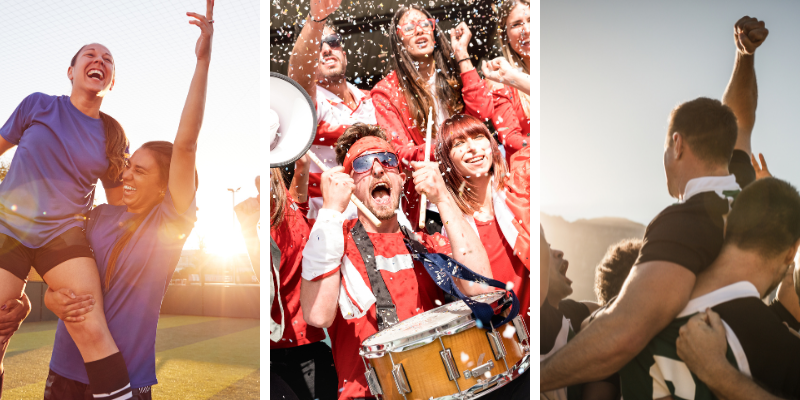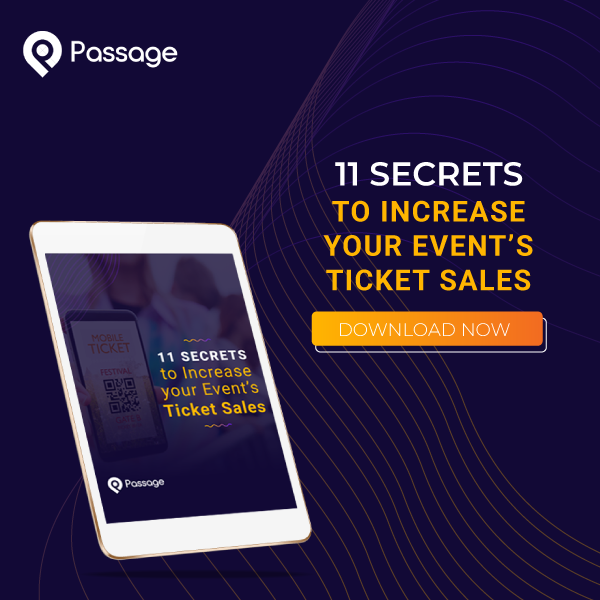In our digital age, there are countless tools at your disposal to promote your events and drive ticket sales. Among these tools, digital advertising has emerged as a powerful and effective strategy for event marketing. With the ability to reach a large audience and target specific demographics, digital ads have revolutionized the way events are promoted and tickets are sold.
In this blog post, we will provide a comprehensive crash course in digital ads, highlighting their benefits and providing step-by-step instructions on how to leverage them effectively.
Overview of Digital Ads
Digital advertising refers to the use of online channels and platforms to promote products, services, or events. It encompasses various formats, including search engine ads, social media ads, display banners, video ads, and more. Digital ads offer a cost-effective and highly targeted approach to reach potential guests.
By utilizing platforms such as Google Ads, Facebook Ads, or Instagram Ads, you can create compelling campaigns that drive ticket sales, increase event visibility, and engage your target audience.
Benefits of Digital Ads for Event Advertising
1. Enhanced Reach. Digital ads offer an extended marketing reach beyond traditional marketing efforts. They can reach potential guests in different geographical locations, allowing you to tap into new markets and attract a diverse audience.
2. Targeted Advertising. One of the significant advantages of digital ads is the ability to target specific demographics. You can define your audience based on various factors, such as age, location, interests, and online behavior. This precision targeting ensures that your ads are shown to individuals who are most likely to be interested in your event, maximizing your ROI.
3. Measurable Results. Digital ads provide valuable data and analytics to measure the effectiveness of your marketing campaigns. You can track impressions, clicks, conversions, and other key performance indicators (KPIs). These insights enable you to optimize your ads, refine your targeting, and make data-driven decisions for future campaigns.
4. Cost-Effective. Compared to traditional advertising methods, digital ads often offer a more cost-effective solution. You can have control over your budget and easily set daily or campaign limits. You can also adjust bids and optimize your ads to ensure you’re reaching the right audience without overspending.
5. Flexible and Customizable. Digital ads offer a highly flexible and customizable advertising solution. Ads can be tailored to align with your specific event goals and continually tweaked and adjusted for optimization. Not to mention the range of ad formats, from search engine ads and social media ads to display banners and video ads, allowing you to choose the best format for your event.
How to Use Digital Ads
Step 1: Define Your Goals
Before diving into digital ads, clearly define your goals. Are you aiming to sell a certain number of tickets? Increase brand awareness? Drive engagement? Identifying your objectives will help shape your ad strategy. Setting specific, measurable goals provides a benchmark to evaluate the effectiveness of your campaigns.
Step 2: Understand Your Target Audience
Develop a comprehensive understanding of your target audience. Research their demographics, interests, and online behavior. This knowledge will inform your ad targeting options and help you create compelling ad content that resonates with your audience. Consider conducting surveys or analyzing customer and social media data, to gain insight into your target audience’s preferences.
Step 3: Select the Right Ad Platforms
Choose the digital ad platforms that align with your event's target audience. Facebook Ads and Instagram Ads are ideal for consumer-focused events since they offer extensive targeting options based on demographics, interests, and behaviors. LinkedIn Ads may be more suitable for professional or B2B events, allowing you to reach a specific professional audience. Google Ads can be effective for capturing potential attendees actively searching for similar events. It’s important to research and analyze the strengths and capabilities of each ad platform before investing in one.
Step 4: Craft Engaging Ad Content
Create compelling ad content that grabs attention and encourages action. Use captivating visuals, concise and persuasive copy, and strong calls-to-action. Highlight the unique selling points of your event, such as keynote speakers, exclusive experiences, early-bird discounts, or limited-time offers. Here’s where you can experiment with different ad formats; image ads, video ads, or carousel ads to see what is the most effective. You may even consider leveraging user-generated content, testimonials, or social proof to enhance your credibility and encourage ad clicks.
Step 5: Set Up Conversion Tracking
Implement conversion tracking on your ticketing platform to measure the success of your digital ad campaigns accurately. This will allow you to trace ticket sales to specific ads and evaluate the ROI. You can set up event tracking pixels to track sales back to specific ads or campaigns.
Did you know Passage offers comprehensive tracking capabilities, empowering you to fully analyze the effectiveness of your ad campaigns? Set up an onboarding call with our support team to learn more.
Step 6: Optimize and Refine
Regularly monitor the performance of your digital ads and make data-driven optimizations. Adjust your targeting settings, test different ad variations, and refine your strategy based on the insights you gather. Now is when you should review key performance indicators (KPIs) such as click-through rates (CTRs), conversion rates, cost per acquisition (CPA), and return on ad spend (ROAS). Ongoing optimization will help you maximize the effectiveness of your campaigns.
Final Thoughts
Digital advertising is a powerful component of event marketing, empowering event organizers to reach wider audiences, engage potential attendees, and boost ticket sales. By leveraging digital ad platforms, event organizers can create targeted campaigns, measure their impact, and refine their strategies for optimal results.
As an online event ticketing platform, we recognize the power of digital ads in driving event success. We hope this crash course has provided you with valuable insights and actionable steps to enhance your event advertising efforts. Embrace the world of digital ads and watch your events soar to new heights!










